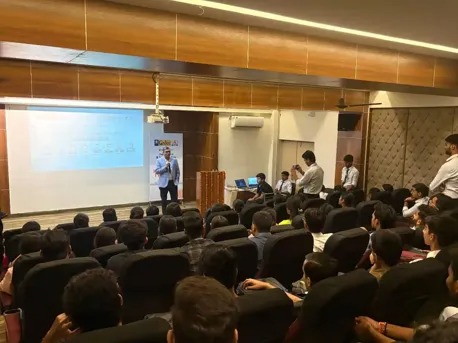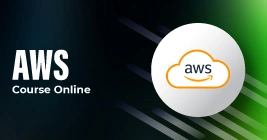Course Design By
Course Offered By

Naveen Kapoor
Placed at Cognizant

Siddharth Jain
Placed at EY

Abhinav
Placed at Capgemini

Kunal Verma
Placed at Wipro

Punit Nair
Placed at Infosys

Rohit Sharma
Placed at TCS

Sneha Iyer
Placed at Deloitte

Nikki Sharma
Placed at Accenture
This Cloud Computing Online Training explains how cloud services are created, used, and managed in companies. The Course focuses on real office work and simple tools used by cloud teams. This Cloud Computing Training matches current job needs.
What You Get
Course Design & Approved By

Nasscom & Wipro
Our Cloud Computing Course with Placement is taught slowly and clearly. Trainers explain each topic in simple words so learners feel comfortable. This Cloud Computing Course Online shows how cloud systems are used in real companies and prepares you for actual work.
Get a peek through the entire curriculum designed that ensures Placement Guidance
Course Design By


Course Offered By

Top Job Profiles:
Average Salary Range:
Top Job Profiles:
Average Salary Range:
Top Job Profiles:
Average Salary Range:
Top Job Profiles:
Average Salary Range:
Top Job Profiles:
Average Salary Range:
Start your career with our job-focused Cloud Computing Course with Placement. Join our Online Training and learn cloud skills needed by companies.
Learn through Cloud Computing Online Training from a trainer with more than 10 years of industry experience. The trainer has worked on real cloud projects and trained many students.

This Cloud Computing Course Online covers the fundamentals of cloud computing. You will learn about the functionality of cloud services, the creation of virtual machines, the use of storage, the structure of networks, the security mechanisms of the cloud, as well as the execution of real cloud projects within organizations.
Yes. The Cloud Computing Course with Placement covers right from basic concepts. All are described step by step, so anyone who is a beginner without any cloud background can learn easily.
Yes. The Cloud Computing Online Training comes with easy notes, class recording features, and practice labs. They help you in revising cloud-related topics and practicing whenever you want.
Yes. The Cloud Computing Training provides assistance for cloud certification. The trainers will teach you what you must study, how you must prepare, and the kind of questions being asked.
For details information & FREE demo class call us on +91-9711526942 or write to us info@cromacampus.com
Address: - G-21, Sector-03, Noida (201301)
The Cloud Computing Courses offered are live classes, and you can learn directly under the instructor and ask any question you may have. These can also be recorded for you to review again afterwards.
Yes. It includes resume writing assistance, interview advice, and cloud-related jobs in the Cloud Computing Course with Placement.
+ More Lessons
Course Design By

Nasscom & Wipro
Course Offered By

Croma Campus

Scenario: Helping cloud users
Outcome: Cloud work ran smoothly

Scenario: Keeping cloud data safe
Outcome: Data was protected and could be recovered

Scenario: Watching cloud performance
Outcome: Cloud systems stayed stable

Scenario: Keeping cloud systems safe
Outcome: Cloud system became safe and controlled

Scenario: Reducing manual cloud work
Outcome: Cloud work started running on its own

Scenario: Connecting cloud systems
Outcome: Cloud systems were connected properly

Scenario: Saving data in the cloud
Outcome: Data was stored safely and neatly

Scenario: Setting up cloud systems for daily work
Outcome: Cloud system was ready to use
Company: Accenture
Location: Hyderabad
Experience: 1-3 Years
Required Skills: Resolve common cloud problems, monitor the system
Company: Deloitte
Location: Mumbai
Experience: 1–3 Years
Required Skills: setup process in the cloud, managing access to cloud storage
Company: Infosys
Location: Bangalore
Experience: 0-2 Years
Required Skills: Basic cloud infrastructure, virtual machine.
Explore Our cloud modules for all levels.

Join our AWS Course Online to learn cloud computing, hands-on AWS services, and real-time project experience.

Google Cloud Course is designed to help learners gain practical knowledge of (GCP) and its core services.

Salesforce Course Online helps you learn CRM fundamentals, dashboards and security using real time cloud scenarios.
For Voice Call
+91-971 152 6942For Whatsapp Call & Chat
+91-9711526942